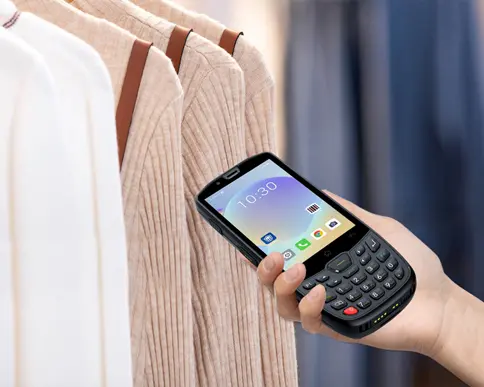Brief Introduction
Selecting the right mobile computers require a comprehensive evaluation of actual business needs. With a wide variety of options available on the market, retailers must systematically assess factors such as functional compatibility, performance, user experience, and cost control. This article provides a detailed analysis of key selection criteria to assist store managers in making informed decisions.

Ⅰ Define Functional Requirements
The first step in choosing mobile computers is identifying specific functional needs. Different retail stores vary in management methods, operational workflows, and industry characteristics, so the following aspects should be considered:
1. Inventory Management – If your store frequently handles stock, it's essential to select mobile computers with barcode scanning capabilities. This ensures efficient stocktaking, inbound/outbound operations, and accurate inventory data.
2. Sales Support – For stores conducting in-person sales, mobile computers with fast payment processing and customer management features is crucial. The device should allow direct generation of sales orders, payment processing, and e-invoicing to enhance the shopping experience.
3. Data Analysis – Advanced mobile computers support real-time data analytics and report generation, helping retailers monitor sales trends and inventory status to optimize operations.
4. Mobile Operations – If employees need to move across different areas, selecting lightweight mobile computers with strong signal reception is necessary to ensure real-time data access and seamless task execution.
Ⅱ. Device Performance
Performance directly impacts daily workflow efficiency and stability. Key considerations include:
1. Hardware Specifications – Processor speed, RAM, and storage capacity significantly affect performance. A device with a high-frequency processor, at least 2GB RAM, and 16GB storage is recommended for smooth app operation and data management.
2. Durability – Retail environments can be demanding, so mobile computers with water resistance, dustproofing, and drop protection ensures reliable operation under heavy use.
3. Battery Life – Extended work hours require long-lasting battery performance. Opt for a device with over 12 hours of battery life to avoid disruptions during peak business hours.
4. Operating System – Mobile computers typically run on Android or Windows. Choose an OS that aligns with internal software compatibility and employee familiarity.
Ⅲ User Experience
Mobile computers usability directly affects employee efficiency and satisfaction. Key factors include:
1. Ease of Use – Prioritize intuitive interface design and smooth operation to minimize training time and boost productivity.
2. Screen Quality – A high-definition display improves visibility, especially in bright environments, reducing eye strain and enhancing usability.
3. Input Methods – Mobile computers support touch, handwriting, and physical key inputs, offering flexibility. Select an input method that aligns with user preferences.
4. Interface Design – A well-designed UI improves operational efficiency and reduces errors, so choose a device with a logical layout and user-friendly features.
Ⅳ Pricing Considerations
Cost is a critical factor in any investment decision. When selecting mobile computers, ensuring good value for money is essential:
1. Budget Planning – Set a reasonable budget based on functional needs. High-end devices may offer superior performance but aren't always necessary for all retail scenarios.
2. Cost Efficiency – Look beyond the initial purchase price and consider long-term value, including failure rates, maintenance costs, and consumable expenses.
3. Multi-Channel Comparison – Obtain quotes from multiple sources, such as direct suppliers and online review platforms, to secure competitive pricing.
Founded in 2002, SEUIC Technologies Co., Ltd. has been committed to grasping core technologies, enhancing technological innovation, providing excellent self-owned brand products, including mobile computers, RFID readers, tablets, barcode scanners and fixed readers. With highly reliable products and efficient services, our products have been widely used in manufacturing, retail, logistics & transportation, healthcare and other industries. We provide frontline workers more durable real-time data collection tools, helping you do more thereby to catapult your productivity to the next level.- The Critical Role of Mobile Computers in Warehouse Logistics2025-06-25
- Seuic Mobile Computers: Multi-Scenario Efficiency Solutions2025-06-24
- Operation Guide and Industry Applications of Seuic Mobile Computers2025-06-23
- How to Choose Mobile Computers for Your Industry Needs2025-06-20
- Mobile Computers: The All-in-One Tool from Data Collection to Industry Implementation2025-06-19